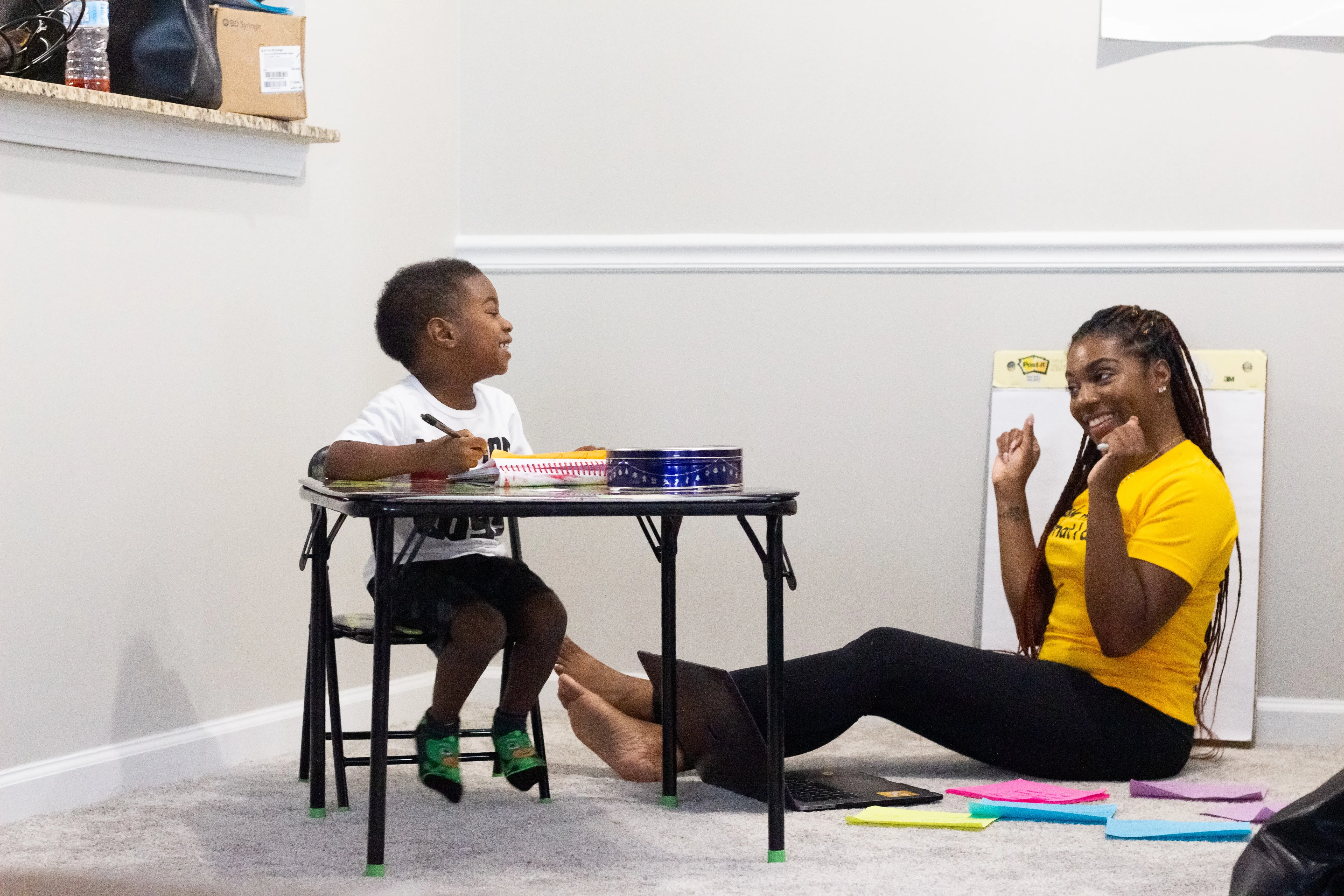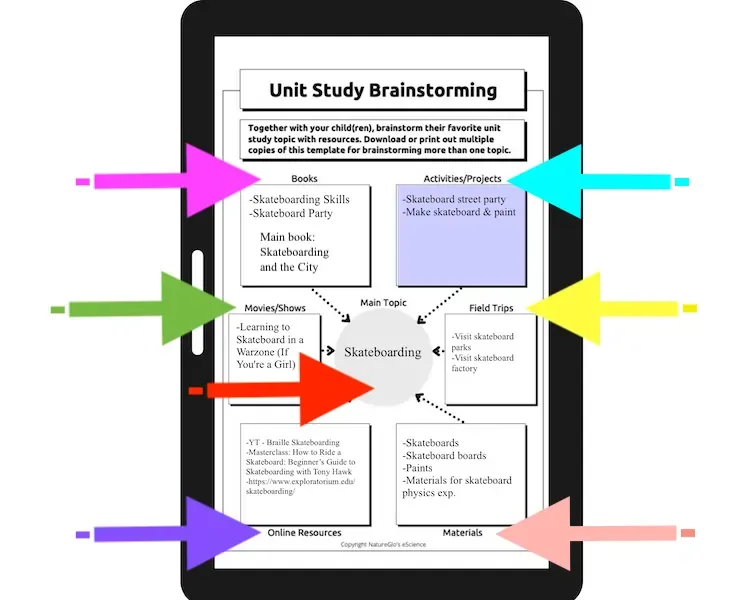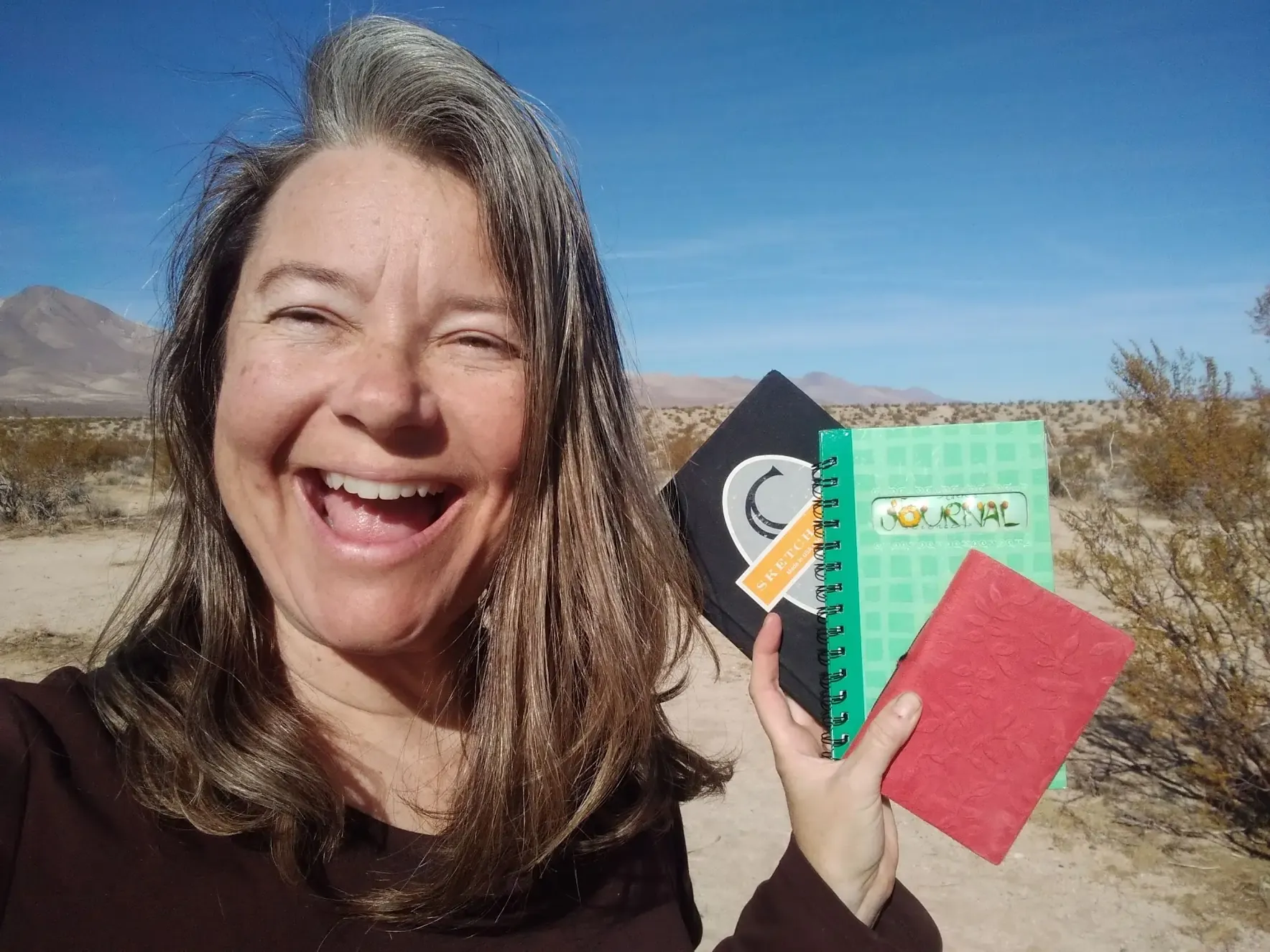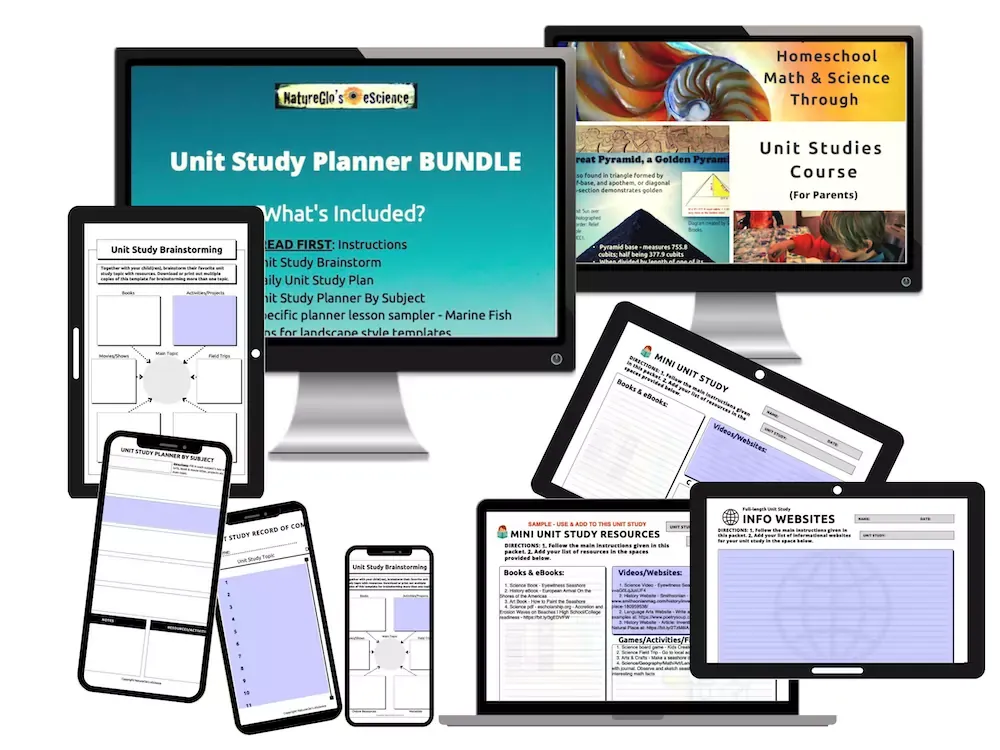How to Create A Unit Study Homeschool Curriculum with Family Discussion
How to create a unit study homeschool curriculum WITH family discussion to pivot your unit studies to be more exciting, engaging and democratic. What do I mean by democratic? Democratic education allows the children's decision-making voices to be heard followed by actions the children can take to help facilitate their unit study learning journey. Child and adult decision making together is a necessary component for a successful homeschool unit study.
Check out the video below of this article.
You don’t have to be A veteran homeschooler to finally ditch unwanted curriculum and successfully do unit studies. Get help with your next unit studies using NatureGlo's Unit Study Planner Template BUNDLE below.
First, what is a unit study?
Unit Study Definition
A unit study is a focused topical study of high child interest that connects multiple subjects all relating back to the main topic.
RECAP: How to Create A Homeschool Unit Study in 5 Easy Steps
Let's do a brief recap of how to create a homeschool or classroom unit study in 5 easy steps since this article covers step #1 in the creation process.
- Have a Unit Study Family Discussion (<<<WE ARE HERE)
- Plan & schedule - (Can be done as a family)
- Research & gather resources (<<<I'll address this here too)
- Look for core subject connections (math, history, language arts, etc; best done by educators)
- Record learning journey (done by educator)
Beginning with a family discussion get your children's input on what it is that they'd like to learn in the next unit study and how they'd like to learn it.

Start with the child's unit study interest choices.
DESCHOOLING TIP #1: Learn to break out of the adult-led learning mentality left over from public education.

DESCHOOLING TIP #2: Collaborate & democratize learning and education.
Why have a discussion with children and get their unit study input?
Discussing together with your children what they want to learn helps empower them and gets them pumped & excited to learn. It helps them take responsibility for their own learning and contribute valuable input to create the learning experience that they want. It greatly increases the chances that the unit study will be a success rather than a flop that you waste hours of time preparing for. It's always best to get the children's buy in to what it is that they want to spend much of their learning time on.

Step #1: Bring a unit study journal for brainstorming
Consider purchasing NatureGlo's Unit Study Planner Template BUNDLE and using the brainstorming template.
Step #2: Have A Homeschool Family Unit Study Brainstorming Discussion Meeting with Favorite Fun Food
You don't have to make a big deal about calling the meeting. However, you do want to make it fun. You can have it centered around a special treat or favorite meal during the discussion.

Explain to the children that you want to get their input about what they want to learn in the first or next unit study for the upcoming weeks.
Invite the children to decide together what they want to learn along with discussing the supporting resources for their chosen unit study.
What if the kids get stuck, resist, or, don't have any unit study ideas?
If the children resist the idea of doing a unit study study, first, make sure to explain thoroughly what a unit study is to them and contrast it to typical "school-at-home learning so that they can see the benefits of following their own interests rather than following someone else's curriculum.
If the children are still resistant, you may want to deschool, if you haven't already done so.
During deschooling, or taking a break from any kind of traditional learning, notice what interests your children naturally have. Regather for another snacky meeting and discuss the possibility of doing a unit study around the interests they enjoyed during deschooling.

If they honestly don't know what to do and get stuck sharing input, you can bring up some ideas based on what interests you know that they already have.
Step #3 - Write down the children's unit study ideas in NatureGlo's Brainstorming Template.
Record your children's interests using the Brainstorming template. See the skateboarding unit study example in NatureGlo's Brainstorming template below. An alternative, especially for older children is that each child can have their own Brainstorming template and write in their topic with supporting resources themselves.

Your family has a few unit study options.
A). You can study one voted on topic together as a family. Honestly, depending on your family's dynamic, typically, young people, since we are herd beings, prefer to play and learn together.
OR, (and there's certainly nothing wrong if this happens often or periodically)
B). Each child, or perhaps one child, may prefer to study their own topic of interest independently.
Here's where NatureGlo's Unit Study Planner BUNDLE can come in handy and help you out. You can print out multiple unit study planners, either one per family topic studied, or several planner templates per child, focused on each child's topic of interest.
- List children's unit study interests using NatureGlo's Journal Template (pictured above left)
- Decide on topic(s) of interest
- Brainstorm together (using NatureGlo's Unit Study Planner Brainstorming Template pictured above right): books, activities, movies, shows, field trips, and materials.
- Set dates to begin (Tip: I suggest having a soft ending date since children's interests and wax or wane per topic)
Step #4 - Group Unit Study: Work on it as a Team
Share unit study research and implementation responsibilities together as a family giving one responsibility per family member, or as a small group.Individuals or small groups can research books, videos, urls, experiments, cooking, and field trips.

Young children can help older siblings and parents, for example, helping to carry books and materials to the learning center and helping stock to stock it.
Step #5 - Independent Unit Study: Child Researches and Gathers the Learning Resources Independently or Together with an Adult
If each child has chosen to do an independent unit study, they can still take responsibility for it and independently research and gather the supporting resources for their study. Very young children, obviously will need adult assistance.

Conclusion
I see a lot of homeschool parents and teachers making the mistake of choosing a unit study topic based off of THEIR OWN adult interests without getting any buy in or feedback from the children. That is a huge mistake and the #1 reason a homeschool unit study can and will flop. The child's interests are the starting place for any successful unit study.
But, don't hang your head low, dear parent, or, teacher if you feel the guilt over barreling through your child's interests and following your own through unit studies or other curriculum. I have done the same thing with my homeschool and school students over the years. It's the norm in our society for adults to take control of kids education. Save for democratic education, society expects the adults to control just about every aspect of children's education from Pre-K - 12th grade in most public school, private school and homeschool models.
I'm proposing democratizing unit studies and allowing the children to lead in the what and how they want to learn, akin to unschooling.
If we want our kids to fall in love with learning and dust off their "ye old learning curiosity drive" that we all were born with, it's high time to let them start taking the reins of their education. Kids learning to take on the responsibility of their education and to have a voice in it has both short and long term benefits.
In the short term, you will get the best unit study learning cooperation from your child because they're engaging with a topic they're truly interested in. The longterm benefits of consulting with your child and getting their unit study buy-in includes that they will begin to fall in love with learning again and take responsibility for their own education.
Unit studies are an amazing framework to help kids follow their learning interests, yet, with the structure that adults seek to have.
Learning to create your own unit studies together as a family will empower you all to let go of unwanted and unnecessary curriculum.
What do you think of holding a unit study discussion with your family?
Share your thoughts in the comments below. I'd love to hear about your unit study thoughts and experiences.
Talk soon!
Gloria aka NatureGlo



